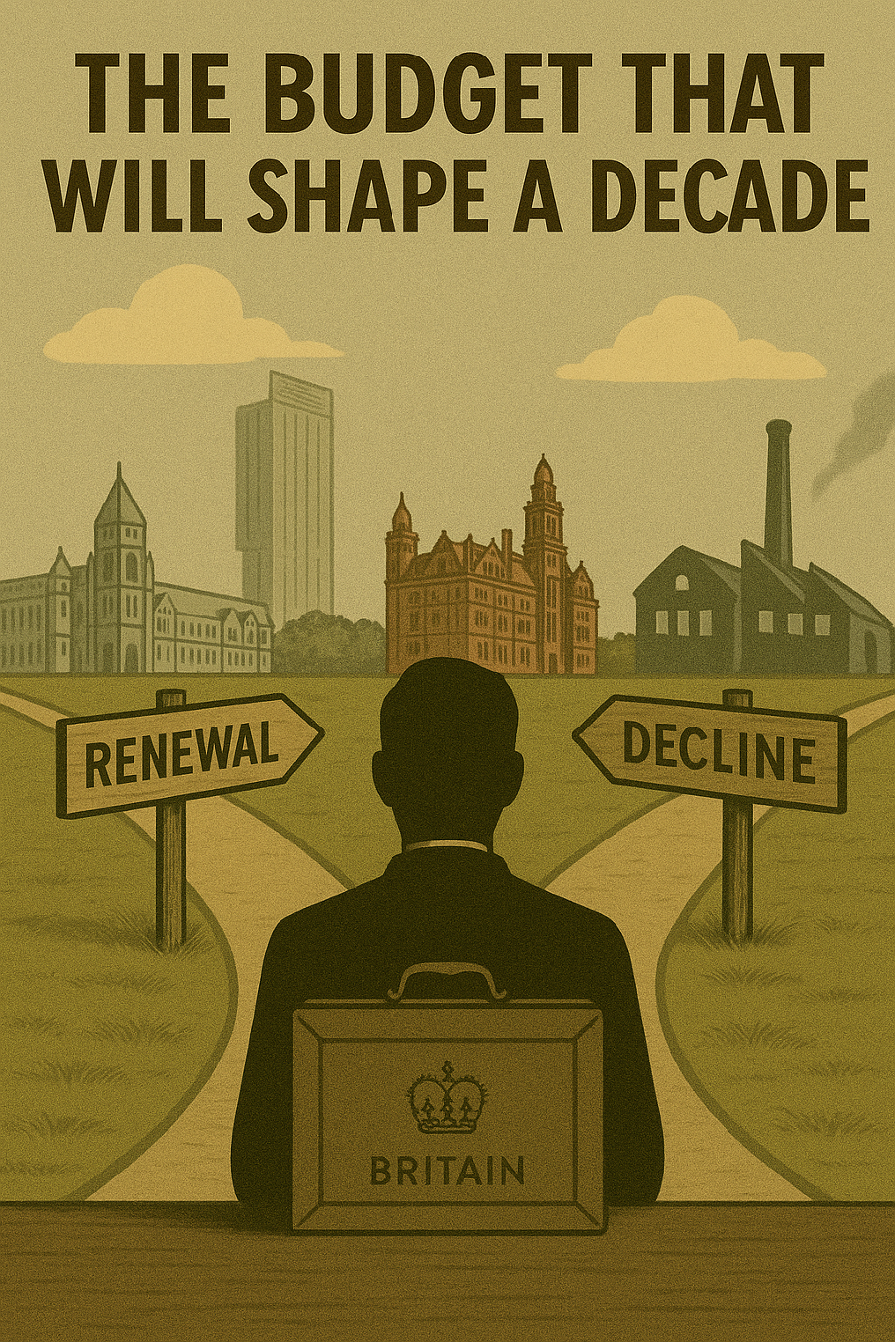The Most Important Budget Ever? Why This Budget Could Shape Our Future
Dr Adam North discusses the upcoming budget and the implications of the governments choice of direction.
For the last 15 or so years, budgets haven’t been that memorable (except for Liz Truss’ 2022 ‘mini budget’). Since 2008, most budgets have focused on cutting public spending under a policy programme called austerity. But the Labour government’s budget being announced on the 26th of November is different. It arrives at a pivotal moment where the country stands at a crossroads.
Unsustainable inequality and collapsing public services have led to much of the public losing faith in politics and politicians, and this is understandable. Not only do people become disaffected and stop paying attention to politics, but it fuels hatred — we spoke to some far-right protestors at the weekend, and what was clear is that they had lost faith in politics to improve their lives, which was partly fuelling their rage around migration, even when they agreed that wealth inequality was a serious issue.
The 50 wealthiest families in the UK now own more than 50% of the population. If serious redistribution does not happen, then wealth inequality will continue to grow, the middle-class will continue to be squeezed, and any social mobility that remains will cease to exist.
Path A: More of the Same
If the government does not pursue policy levers that redistribute resources from the wealthiest back to the 99%, then those who have lost faith in politics will have their belief confirmed. With public trust in politicians already being at an all-time low, voters will either stop voting entirely, or turn to strongman alternatives who promise quick, easy fixes, whilst stabbing working people in the back.
History has taught us over and over again that this is the case, and if we do not act now, the descent towards a darker future is inevitable.
Path B: Real Change
If Labour actually tackle wealth inequality, an issue which is incredibly popular among the public, then they can change the narrative. If the public see politicians dealing with the issues they recognise to be the most important, then it could shift the tide of public trust. People want to have faith in politicians again, and that trust can be rebuilt by being brave and pursuing wealth taxation, which will not be a magic bullet to fix our economy — but it is the first step.
Trust is a virtuous circle. Trust makes people more engaged in politics, which means that they are less likely to turn to snake oil salesmen like Farage. Trust is key to stability, to good politics, and to social cohesion.
Cost of Living Crisis
Millions remain one bad month away from crisis. Energy bills, rent, mortgages, food prices — everything is up except wages which lag behind inflation. Child poverty continues to climb.
Changes to taxation, benefits, and cost-of-living support will directly shape whether millions sink or stay afloat. If the government increases the burden on the most vulnerable, then homeless will increase, poverty will skyrocket, and public health will deteriorate.
Is This a Turning Point?
Budgets often reflect the politics of the moment, but some define the future. This budget arrives at a moment when the country desperately needs direction, courage, and investment.
If the government gets this wrong, Britain could lock itself into a downward spiral where conditions for working people continue to deteriorate and trust evaporates for good.
If it gets it right, this could be the beginning of a recovery.
Either way, the stakes have never been so high.


